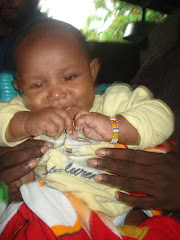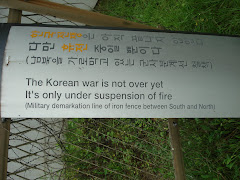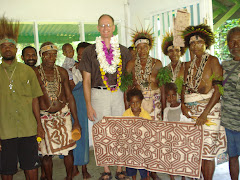
Last week I was in Thailand.
I was attending a Leaders’ Conference hosted by Franciscans International. They brought together a large group of Franciscans from around the Asia-Pacific region (which embraces everything from Pakistan and India to the Solomon Islands and New Zealand, and Mongolia!!). I went to speak about the Solomon Islands training Franciscans International helped us with (and to remind them that Franciscans International is an ecumenical organization). It was a good meeting, and I made friends with a wide array of people.
Our visit began with a visit to the United Nations offices in Bangkok. We met with a staff officer from the Economic and Social Commission for Asia Pacific, and then we listened to a panel of experts representing a variety of organizations within the UN. We were reminded that the UN is “a member State driven organization.” I took this to be a reason why the UN is so often perplexingly silent. Some of the speakers expressed frustration with the UN yet at the same time they endorsed it as one of the few international organizations to which most of the nations belong. Our FI staff said the real power of the UN is in its ability “to name and shame” member states. What happened to Libya is an example.
Franciscans International will be spending a lot of time and effort this year looking at the plight of women and children who are trafficked for cheap labor or sexual exploitation. Because these are big issues, we have partnered with other organizations, especially ECPAT (End Child Prostitution, Pornography and Trafficking), Save the Children, Caritas and Jesuit Refugee Service. These NGO’s offer direct service to at risk and exploited children and they advocate for them at the UN. Those countries that do not have laws or systems in place to protect children will get some pressure from other countries at the UN, with a big push from FI and our friends.
In addition to advocacy at the UN, Franciscans International does a lot of “capacity building” among Franciscans. This means they come and do training about human rights, and how to develop social justice ministry like they did for the religious orders of the Anglican Church of Melanesia in the Solomon Islands. I was able to talk about our experience and the possibilities we now have as a result of the training.
But we couldn’t ignore what was happening all last week in Libya, Bahrain, Tunisia, Egypt, Iran…did I leave anybody out? It was an amazing week to watch Al Jazeera television during my jet-lagged nights, my body unable to sleep. The conference received messages asking for our prayers in solidarity with all of the people caught up in the amazing changes. We heard about some Franciscan friars living and working in Libya. I was happy to know that friars and sisters live and work in these countries, though all of us were deeply concerned for their safety.
Peace is not just an ideal. It is a process. And all of us, especially those who profess and call themselves Franciscans must find ways to engage people, break down barriers of suspicion and hatred, raise up the common ground of men and women in the world today. I finished my time in Thailand by going to visit the place where Thomas Merton died.

He’d gone to Thailand to engage in an interreligious dialogue and had spoken about Marxism and Christianity. He died when a fan shorted out and he was electrocuted. We stood in Star Cottage where it happened and shared a moment of prayer: I prayed that I might find ways to reach out to those of different traditions and cultures like Merton did.
Of course 21st-Century barrier bashing and social change is very different from 40 years ago. The “Arab Spring” is due to the internet. Crowds are galvanized by Facebook and Twitter. Cell phones transmit pictures and stories; these are posted, shared and read out over the television. Anyone can report on what’s happening. All of us have the possibility of “being a contender” and offering what we can to encourage the forces of democracy and freedom and peace.







